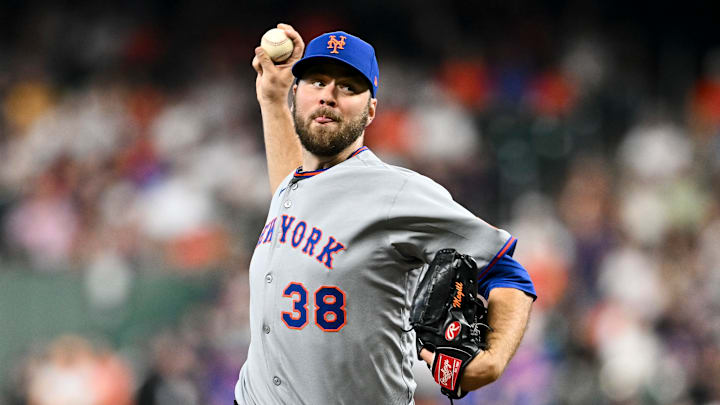The Mets' first win of the season on Friday night gave fans a lot to be excited about. Juan Soto hit his first home run as a Met, Mark Vientos hit an RBI double, and Edwin Diaz threw a perfect ninth for the save, but perhaps the most promising aspect of the 3-1 win over the Astros was Tylor Megill's performance on the mound.
In five-plus innings, Megill gave up just one run, three hits, and struck out six as he earned the win in his first start of the season.
Megill wasn't even supposed to be in the rotation this year, but injuries to Sean Manaea and Frankie Montas gave the 29-year-old another chance to prove his worth as a starting pitcher. Friday's start is an encouraging sign for Megill, who returned from Triple-A Syracuse late last August and looked better than ever. In his six starts to finish last season, he pitched to a 2.30 ERA and held opposing batters to a .643 OPS. With Friday night's win, the Mets have won each of the last seven games Megill has started, dating back to his August 30th return.
For his entire career, Megill has been a pitcher who has shown flashes of unhittable stuff. His issue, however, has always lain in consistency. In the past, we've seen him struggle to get through the order multiple times in a game, having trouble facing the same hitters twice, but he has shown reason as to why this problem may not persist this season.
On Friday night, we saw Megill use, for the most part, just three pitches: his four-seam fastball, his sinker, and his slider. Having him cut down on his repertoire and focus on his most effective pitches allows for much higher consistency, rather than throwing everything he can. Megill did not throw a single cutter -- his highest batting-average-against pitch (.326 in 2024) -- on Friday.
He has also noticeably tweaked his slider to be more effective, adding 5.8 inches of induced vertical movement from 2024, as that number has gone from -1.4 to -7.2 per Baseball Savant. This has increased the whiff percentage of the pitch from 29.1% last year to 55.6% this year. Of course, it's impossible to truly determine the effectiveness of his tweaked slider after one start, but the results of adding significant movement to the pitch seem to be showing promising results.
The Mets face the Blue Jays this afternoon for their home opener, with Megill slated to pitch. We won't know if he will be able to carry forward his recent success until he pitches today, but try to take note of the way he uses his slider to produce swings and misses, and the number of different pitches he uses. If Megill can continue to capitalize on his newly tweaked slider and his simplified pitch repertoire, he very well can turn a temporary opportunity into a more permanent role.
